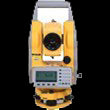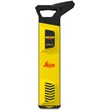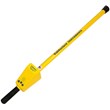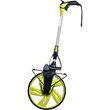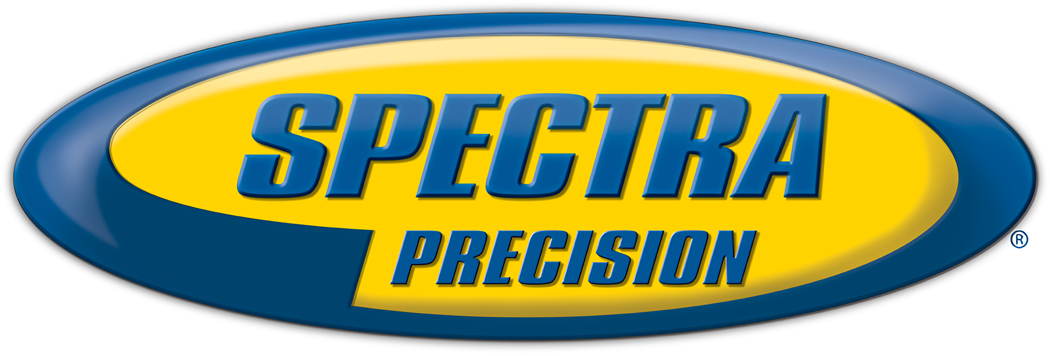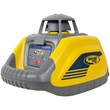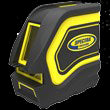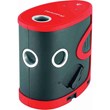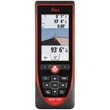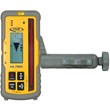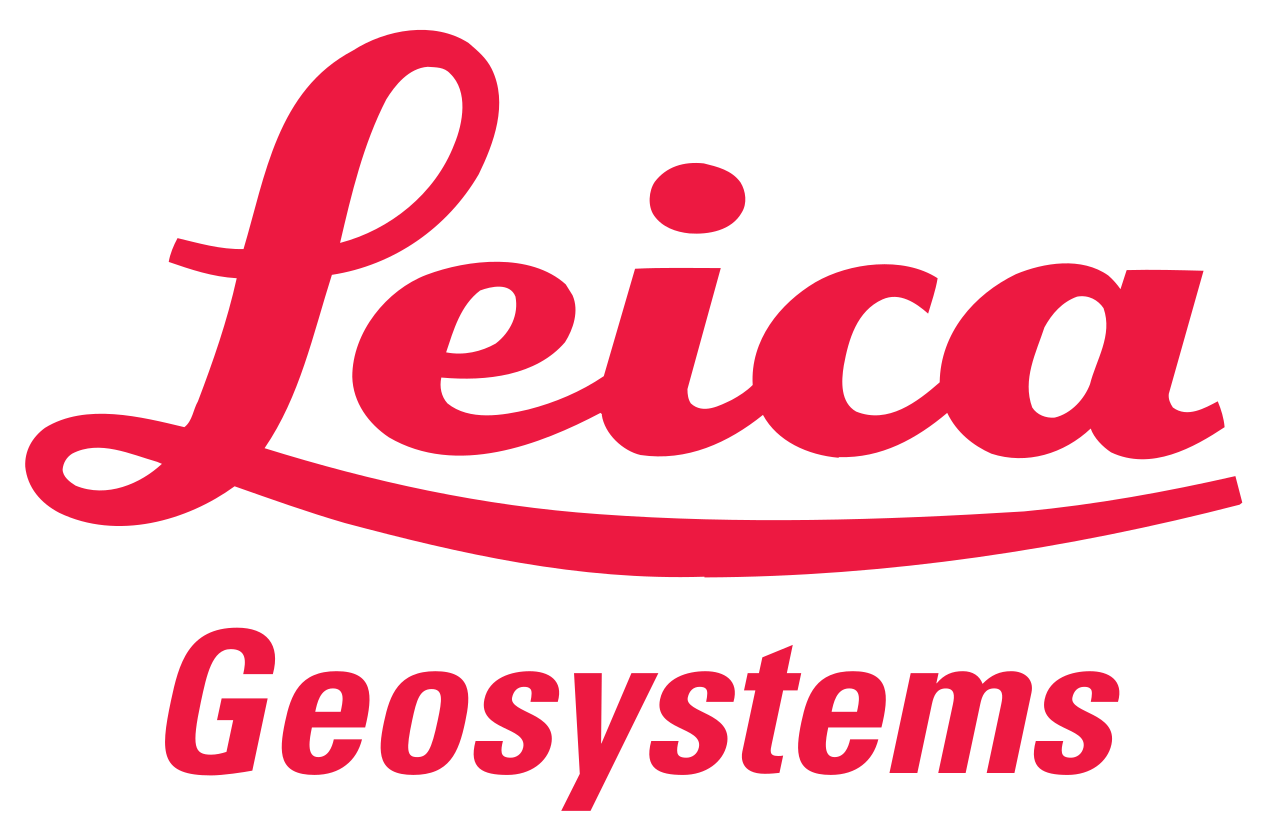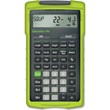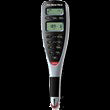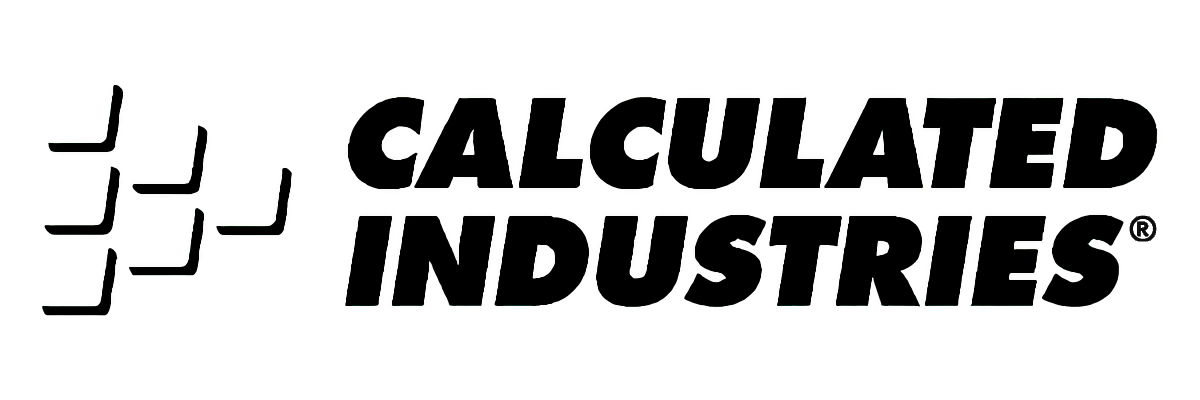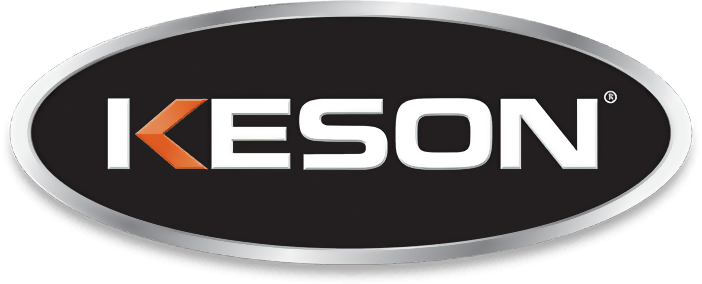Pipe and Cable Locators
Filters
There are no products matching your search
View all productsCable and Pipe Locators Buyer's Guide

Excavation and construction projects rely on precision and safety. Cable and pipe locators play a critical role in identifying underground utilities before digging begins. Accidental damage to utility lines can lead to service outages, expensive repairs, and even serious injuries.
This guide covers everything about cable and pipe locators, from their types and features to choosing and maintaining the right one.
Our Best Seller
Leica's ULTRA Precision Utility Tracing System is our best-selling underground utility finder solution. This advanced system features a powerful 12-watt transmitter and an advanced locator, offering exceptional performance in various environments. It offers a broad frequency range from 50 Hz to 200 kHz, accommodating various site conditions. The system features Ambient Interference Measurement (AIM) technology, which analyzes environmental noise and recommends optimal frequencies for accurate tracing. Its variable antenna configurations and direction-enabled signal improves detection capabilities. With Bluetooth connectivity, a large backlit LCD display, and an IP65 rating for dust and water resistance, the ULTRA system ensures reliable performance in diverse environments.
What are Cable and Pipe Locators
Also known as cable locator or utility locator, cable and pipe locators are type of survey equipment used to detect and trace underground utilities like electrical cables, water pipes, gas lines, and communication wires. They are essential in industries such as construction, utility maintenance, landscaping, and even residential projects.
These devices pinpoint the location and depth of underground utilities, preventing damage, reducing downtime, and improving safety.
Types of Cable and Pipe Locators
Choosing the right utility line locator depends on your project's specific needs.
Electromagnetic Locators
These cable locators use electromagnetic signals to detect conductive materials such as metal pipes and cables. They are among the most commonly used locators for identifying live or de-energized utility lines. While highly effective for metallic utilities, they cannot detect non-metallic materials like PVC or fiber optics.
Ground Penetrating Radar (GPR) Systems
They emit radar pulses to create images of underground structures, making them ideal for detecting both metallic and non-metallic utilities. These systems are invaluable for projects involving plastic pipes or concrete structures but may face limitations in high-moisture or clay-rich soil conditions.
Acoustic Pipe Locators
These detect the sound waves produced by pressurized water flowing through pipes. Acoustic locators are effective for locating non-metallic water pipes but require the pipes to be under pressure and carrying water.
Magnetic Locators
They sense disturbances in the Earth's magnetic field caused by ferrous metals like iron or steel. These tools are simple yet effective for locating valve boxes, manhole covers, and iron pipes but are limited to ferrous metal detection.
Multi-Frequency Locators
These offer versatility by allowing operators to switch between different frequencies based on the material and conditions. They are highly effective for complex projects involving diverse underground utilities.
How Does a Cable and Pipe Locator Work?
Buried beneath our streets are utility lines that power our homes, supply water, and maintain communication networks. These utilities can be either conductive or non-conductive. Conductive utilities, made of materials like copper, steel, or iron, naturally emit electromagnetic signals as they conduct electricity. Pipe finders detect these signals using electromagnetic tracing.

For conductive utilities, passive location is used. This method involves turning on the locator, scanning the area, and detecting naturally emitted signals. The locator alerts the operator audibly or visually when it identifies a signal, making it a straightforward process for identifying live or energized lines.
For utilities without a live current, active location is required. This involves attaching a transmitter to the pipe or cable to induce a signal. The transmitter generates a specific radio frequency, such as 34 kHz, which travels along the utility line, creating an electromagnetic field. The receiver is then tuned to detect this specific frequency while ignoring others, ensuring precise tracing.
Non-conductive utilities, like optic fiber, sewer pipes, or stormwater pipes, require additional tools. A conductive rod can be inserted into the pipe for tracing. Alternatively, advanced technologies like Ground Penetrating Radar (GPR) detect non-conductive utilities by imaging underground structures. Systems like the Leica DSX Utility Detection System allow operators to locate any buried object, regardless of its conductivity, making them invaluable for diverse applications.
Cable and Pipe Locators Applications
Pipe and cable locators are crucial across various industries, such as:
Construction Projects
Cable or Pipe detectors are indispensable for identifying underground utilities before excavation, ensuring the safety of workers and equipment while preventing costly damages. This application is foundational to any site preparation or building project.
Utility Maintenance and Installation
Utility line locators are essential for locating water, gas, and electrical lines during repairs, upgrades, or installations. Accurate detection minimizes the risk of service interruptions and helps maintain operational efficiency.
Telecommunications
Locators are heavily used in the telecom industry to trace buried fiber optic and communication lines. Precise detection is vital for network maintenance, expansions, and avoiding disruptions in critical communication systems.
Advanced Technology in Cable and Pipe Locators
Emerging technologies are poised to further enhance the capabilities of cable and pipe locators. Prominent advancements include:
Artificial Intelligence (AI) and Machine Learning Integration
AI algorithms are being developed to automate defect detection and classification in underground utilities. These systems can analyze data from locators to identify anomalies, predict potential failures, and recommend maintenance actions, thereby increasing efficiency and accuracy in utility management.
Advanced Sensing Technologies
The integration of multi-sensor arrays, including Ground Penetrating Radar (GPR) and electromagnetic sensors, is enhancing the detection of both metallic and non-metallic utilities. This combination allows for a more comprehensive understanding of underground environments, improving the accuracy of utility mapping.
Enhanced Data Integration with Geographic Information Systems (GIS)
Developments are underway to improve the integration of locator data with GIS platforms. This advancement facilitates real-time mapping and analysis, providing a more detailed and interactive view of underground utilities, which is crucial for planning and maintenance activities.
Key Features to Consider when Buying Cable and Pipe Locators
When choosing the best underground utility locator equipment, evaluate the following factors:

1. Detection Range
The detection range determines how deep the locator can identify utilities. Models like the SubSurface PL-VF3 are capable of detecting utilities buried up to 25 feet deep, making them ideal for large-scale projects or sites with deep infrastructure.
2. Frequency Range
The effectiveness of a locator often depends on its frequency range. Lower frequencies are better suited for long-distance detection with minimal interference, while higher frequencies are ideal for shallow or specific targets. The Leica ULTRA, with a frequency range of 50 Hz to 200 kHz, offers exceptional versatility, making it suitable for various environments and utility types.
3. Alert Systems
Most cable/pipe locators come equipped with audio and visual alert systems. These alerts, often displayed on an LCD screen, provide real-time data on signal strength, depth, and proximity. Features like low battery indicators and alerts for nearby power lines enhance usability and safety.
4. Depth Estimation
Knowing the approximate depth of a utility line is crucial for safe excavation. Locators like the SubSurface PL-2000 provide accurate depth approximations, minimizing the risk of damaging buried infrastructure.
5. Internal GPS/GNSS Receiver
Advanced models like the Geomax EZiCAT i750 include GPS integration, automatically logging positional data for precise mapping. This feature is especially beneficial for large projects requiring detailed utility records.
6. Durability
Durability is essential for locators used in harsh environments, such as construction sites or extreme weather conditions. Rugged designs with dustproof and waterproof protection ensure long-lasting performance. Look for models with an IP65 or IP67 rating. IP65 provides dust resistance and protection from low-pressure water jets, while IP67 offers full dustproofing and immersion resistance for up to 1 meter.
7. Strike Alert
Preventing accidental strikes is critical during excavation. Strike alert features notify operators of shallow or high-risk utilities, significantly reducing the likelihood of damage or injury.
Top Brands for Cable and Pipe Locators
Renowned brands offer reliable solutions for pipe locating and utility mapping. Leica is known for its precision and rugged designs, making it a top choice for demanding applications.
Leica
Leica is renowned for precision engineering and durable designs, making it a top choice for professionals. The Leica DD100 Series is an excellent example, featuring models like the DD120 and DD130. These devices offer IP54 dust and water resistance, detection capabilities up to 10 feet, and up to 15 hours of battery life, making them ideal for construction and utility maintenance.
Geomax
Geomax combines cutting-edge technology with rugged durability. The Geomax EZiCAT i750 is a standout model, featuring built-in GPS for precise mapping and a smart-ready design for seamless integration with additional equipment. It’s perfect for large-scale projects requiring advanced detection and documentation.
SubSurface
SubSurface is known for deep detection and robust designs. The SubSurface PL-VF3 is a leading model capable of detecting utilities buried as deep as 25 feet. Its high sensitivity and durable construction make it a trusted tool for utility mapping and maintenance in demanding environments.
Schonstedt
Schonstedt specializes in compact and portable locators that are user-friendly and reliable. The Schonstedt Rex is a notable model, offering multi-frequency capabilities in a lightweight design. It is recommended for locating all types of underground utilities, including water and sewer, electric, telecom, and gas. The sleek design of the transmitter is less than 2 inches thick and weighs less than 4 pounds, making it ideal for professionals requiring versatility and ease of use.
Cable and Pipe Locators FAQs
Q: Can non-metallic utilities be detected?
A: Yes, but not with standard electromagnetic locators. Non-metallic utilities, such as PVC or plastic pipes, require advanced systems like Ground Penetrating Radar (GPR) or additional accessories like sondes or conductive rods.
Q: How deep can a cable and pipe locator detect?
A: The detection depth depends on the model and the material being located. Basic models can detect up to 10 feet, while advanced systems like the SubSurface PL-VF3 can detect utilities as deep as 25 feet. Ground Penetrating Radar (GPR) systems may reach even greater depths for certain materials.
Q: How accurate is a cable locator?
A: The accuracy of a cable locator depends on the model and environmental factors. High-end locators with advanced signal processing, such as the Leica ULTRA, can achieve accuracies within a few inches, while standard models may have slightly larger margins of error.
Q: What kind of batteries does the utility locator use?
A: Most utility locators use standard alkaline or rechargeable batteries. Advanced models may use lithium-ion batteries for longer use. Check manufacturer specs for compatibility and keep spares handy.
Q: Can pipe locators be used for residential projects?
A: Absolutely. Many compact and affordable models are ideal for residential projects like landscaping, fence installation, or minor excavation work. For example, models with strike alerts and shallow detection capabilities work well for these applications.
Q: What is the best cable locator for construction projects?
A: For construction projects with diverse utility types, a multi-frequency locator or a system with GPS integration is often the best choice. Models like the Leica ULTRA or Geomax EZiCAT i750 offer versatility and precision for large-scale projects.
Q: What accessories are useful with cable and pipe locators?
A: Common accessories include signal transmitters for active location, sondes for tracing non-metallic utilities, and connection cables for indoor signal induction.
For locating pipes and cables that do not have a live electrical current, signal transmitters can induce a detectable signal into the pipe or cable, enabling accurate tracing. In cases where the pipe or cable is made from non-conductive materials, you can use a service tracer along with a signal transmitter for effective detection.
Another valuable accessory is a connection cable, which links the signal transmitter to an indoor power outlet. This setup allows you to track utilities extending from a specific property using your buried cable locator. Additionally, our cable locator tools and pipe locator equipment are designed to run on standard alkaline batteries, ensuring convenience and reliability in the field.
Advanced locators may also benefit from Bluetooth adapters and mapping software, further enhancing usability and precision for complex projects.
Q: Are GPS-enabled locators worth the investment?
A: GPS-enabled locators are highly beneficial for projects requiring detailed mapping and documentation of utility locations. They are particularly valuable for large-scale infrastructure projects and utility mapping.
Q: How does environmental condition affect locator performance?
A: Soil conditions like high moisture, clay content, or rocky terrain can impact the effectiveness of certain locators. Multi-frequency locators or GPR systems are better equipped to handle challenging environments.
Q: What safety precautions should I take when using a locator?
A: Always follow the manufacturer’s instructions, wear appropriate protective gear, and double-check the locator’s readings before digging. Use a locator with a strike alert feature to avoid damaging shallow utilities.
Q: How can I repair a utility locator?
A: Repairing a utility locator depends on the issue. For minor issues like battery replacement or software updates, refer to the manufacturer’s manual. For more complex problems, such as damaged sensors or signal transmitters, it’s best to contact the manufacturer or an authorized service center for professional repair.
Care and Maintenance of Cable and Pipe Locators
Proper maintenance ensures accuracy and extends the life of your underground pipe locator:
- Cleaning: Remove dirt, dust, and moisture after every use.
- Storage: Store in a temperature-controlled, dry environment to prevent damage.
- Battery Maintenance: Regularly replace or recharge batteries.
- Inspection: Check for visible damage, loose parts, or wear before use.
- Calibration: Periodically calibrate the device to maintain accuracy.
- Firmware Updates: Keep software updated for advanced locators.
Accurate utility detection is key to safe and efficient excavation and construction. Explore Tiger Supplies' wide selection of pipe and cable locators, including industry-leading brands like Leica, Geomax, and Schonstedt. Let us help you find the perfect locator for your needs. Contact our team today for expert guidance or browse our collection to get started!

